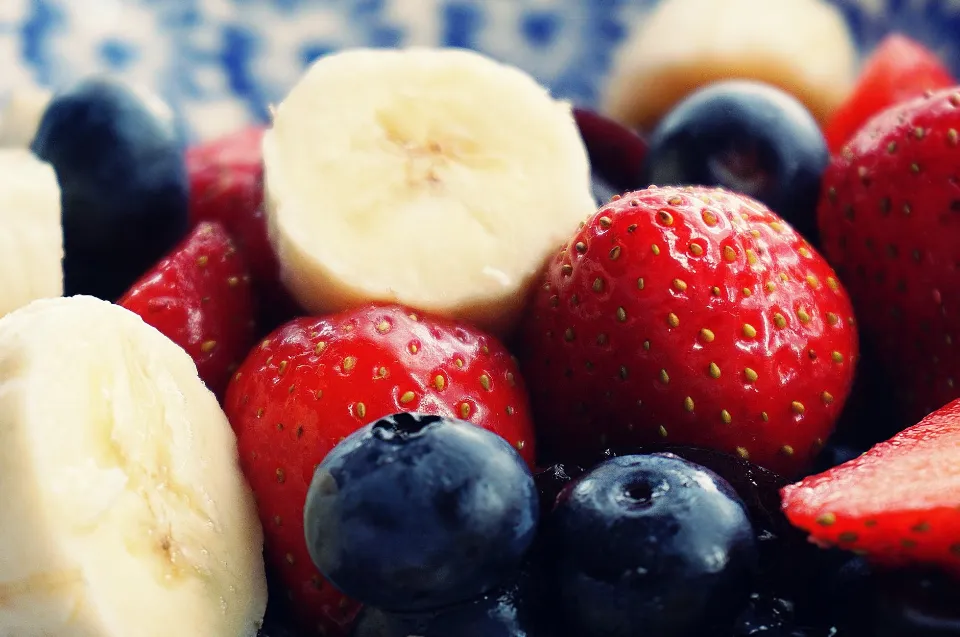Age-related muscle loss affects the body’s metabolism overall and causes sarcopenia and weakness, which increase the risk of death and fractures. Although nutrients are essential to muscle metabolism, only proteins, and amino acids have been the subject of in-depth research regarding the relationship between nutrition and muscle loss.
Muscle loss may be avoided by eating an alkaline diet and a diet rich in the antioxidant vitamins C and E. Although current recommendations for the prevention of sarcopenia focus on protein and, to some extent, vitamin D, other aspects of the diet, including fruits and vegetables, should be considered.
You can learn which vitamins are helpful for preventing age-related muscle loss in the sections that follow, along with where you can buy them.
3 Vitamin Stops Age-related Muscle Loss
Vitamin C
Study results published in The Journal of Nutrition showed positive trends between dietary vitamin Measures of C and fat-free mass for both sexes. In participants with sufficient compared to insufficient plasma vitamin C, fat-free measures—expressed as a percentage of total mass or standardized by body mass index (BMI)—were higher by 1.6% and 2.0% for men and 3.4% and 3.9% for women. These results of positive associations of both dietary and circulating vitamin C with measures of skeletal muscle mass in middle- and older-aged men and women suggest that dietary vitamin C intake may be helpful for preventing age-related muscle loss. By encouraging a diet high in fruits and vegetables, one can help prevent the age-related loss of skeletal muscle, which has a significant positive impact on the public’s health.

Before or after exercise, taking a vitamin C supplement may improve outcomes. For the development of cells and tissues, vitamin C is essential. People should therefore notice the results in their muscles’ growth. The importance of vitamin C for muscle growth may increase with age. Men over 50 who take vitamin C supplements, in particular those who are male, retain more muscle mass.
Vitamin E
Vitamin E has long been known as a powerful antioxidant, and now scientists have shown that without it, the plasma membrane, which essentially keeps a cell from spilling its contents and controls what moves in and out, cannot properly heal.
The relationship between vitamin E and strong muscles is well known; for instance, mammals and birds deficient in the vitamin develop diseases that can be fatal and cause muscle wasting. Frailty syndrome, a condition where muscles are weak and people are unsteady on their feet, is brought on by a poor diet that results in low vitamin E levels in the elderly. The common vitamin’s well-known role as a potent antioxidant has led to its use in antiaging products and in helping to delay the onset of Alzheimer’s disease by shielding neurons from free radicals.
Vitamin D
Known as the sunshine vitamin, the body produces vitamin D in response to sun exposure. Numerous processes, including the absorption of minerals like calcium and phosphorus and maintaining the health of bones and the brain, depend on vitamin D. Surprisingly, vitamin D can work wonders for the growth of muscles. According to research, people with high levels of vitamin D have lean muscle mass. The candidates in these studies also showed superior muscle function. A daily supply requires just 20 to 30 minutes of direct sunlight. Try a vitamin D supplement if that isn’t possible.
Research has shown vitamin D plays an essential role in the health of our skeletal muscles. As a matter of fact, low serum vitamin D levels are linked to weakened muscles, which in turn cause them to lose mass, as well as to a reduction in the number of muscle-building cells that are produced. People are more prone to falling due to muscle weakness when there is a loss of muscle strength, function, and capacity to build muscle cells. This makes sense because you won’t have the stamina and strength to move around and engage in the activities you love the most if your body isn’t producing and maintaining the stores of muscle it needs.
How Do You Get Three Types of Vitamins?
Vitamin C
The majority of people can obtain enough vitamin C each day from their diet. The recommended daily allowance of vitamin C is one orange, a cup of strawberries, chopped red pepper, or broccoli.
Men should consume 90 mg of vitamin C daily, while women should consume 75 mg. During pregnancy, 120 mg a day is recommended. All adults are allowed no more than 2,000 mg per day. Although too much dietary vitamin C is unlikely to be harmful, large doses of vitamin C supplements might cause:
- Diarrhea
- Nausea
- Vomiting
- Heartburn
- Stomach (abdominal) cramps
- Headache
Keep in mind that a healthy diet usually provides enough vitamin C for most people.
Vitamin E
Vitamin E supports strong skin and eye health as well as the immune system, the body’s natural defense against disease and infection. A group of substances known as vitamin E can be found in a wide range of foods.
Good sources include:
- Plant oils – such as rapeseed (vegetable oil), sunflower, soya, corn and olive oil
- Nuts and seeds
- Wheatgerm – found in cereals and cereal product

Vitamin D
- Spend time in sunlight: Vitamin D is often referred to as “the sunshine vitamin” because the sun is one of the best sources of this nutrient. A specific kind of cholesterol found in your skin serves as a base for vitamin D. This substance transforms into vitamin D when it is exposed to UV-B rays from the sun.
- Consume fatty fish and seafood: Among the best, natural food sources of vitamin D are fatty fish and seafood. In fact, 3.5 ounces (100 grams) of canned salmon has the potential to supply up to 386 IU of vitamin D, which is roughly 50% of the RDI.
- Eat more mushrooms: The only vegetarian source of vitamin D is found in mushrooms, which, like people, can produce their own vitamin D when exposed to UV rays. Humans generate vitamin D3 or cholecalciferol, whereas mushrooms generate the D2 or ergocalciferol.
Summary
In short, vitamins c, vitamin d, and vitamin e are all useful for muscle loss due to aging. Of course, these vitamins can support a healthy fitness regimen and help to build and maintain muscle mass. Most importantly, these are present in nutritious foods like lean meats, fruits, and vegetables. Supplements are helpful and can give you a boost. Always consult your doctor or pharmacist before taking any supplements or trying a new fitness routine.



